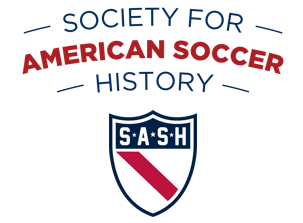A dominating force in the administration of American soccer for several decades in the middle of the 20th century. Barriskill was general secretary of the U.S. Football Association/U.S. Soccer Football Association from 1943 to 1971 and was far more influential than the 12 USSFA presidents who he served under.
Barriskill became secretary of the federation in 1943, but he had already been involved with the governing organization of American soccer for many years. Although he was not among the leading founders of the USFA, being only 24 yers old in 1913, he was by then a friend of Gus Manning, the USFA’s first president, and soon became involved in USFA affairs. He rose through the ranks to become USFA president himself from 1934 to 1936.
That was only a prelude, however, to his years as federation secretary. During that time, he was the man who ran the organization, which was renamed the U.S. Soccer Football Association not long into his tenure.
When Barriskill became secretary of the Federation in 1943, he was a salesman for an Irish linen manufacturer that was based in Belfast, where Barriskill had been born, and which maintained a sales office in New York. Barriskill had been working for the firm for several years before coming to New York in 1910, and it provided its ace salesman with both working space in which to conduct soccer business and time away from his regular duties.
In much the same manner as USSF president Werner Fricker 40 years later, Barriskill’s most important task after taking over as federation secretary was to rescue the organization from financial straits. Barriskill did that both out of his own pocket and by encouraging games between games between American teams and touring foreign teams, aggressively making sure that the federation got its share of the gate receipts. The most notable of those games, and most significant as far as improving the USSFA’s financial position, were those on the first Liverpool tour in 1946.
Barriskill retired from the USSFA in 1967, by which time he was into his 80s. He had shepherded the federation through some of its most difficult years, in which it might have ceased to exist but for his efforts.
Inducted in 1953.
